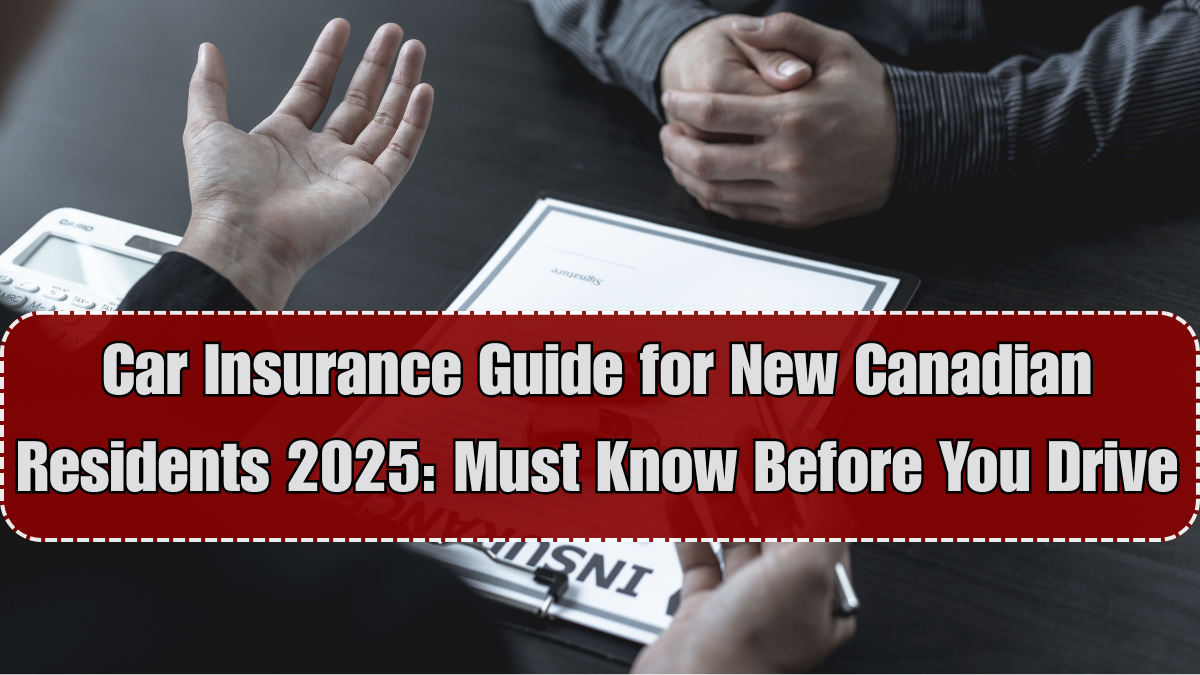Navigating car insurance requirements for new residents in Canada can be one of the most important—and confusing—steps in settling down. Whether you’ve moved on a work permit, student visa, or as a permanent resident, understanding the Canadian auto insurance system is crucial before getting behind the wheel.
In 2025, the car insurance structure in Canada continues to be province-regulated, meaning the rules, coverage types, and premiums differ significantly depending on where you live. Provinces like Ontario, Alberta, and British Columbia have their own auto insurance providers and legal frameworks. This guide will help every newcomer understand how to register, insure, and legally operate a car in Canada from day one.

Car Insurance Basics for Newcomers in 2025
All Canadian provinces require vehicle owners to carry a minimum level of car insurance, and it is illegal to drive without it. Here’s what’s mandatory for new Canadian residents:
-
Third-Party Liability Coverage (minimum $200,000, usually higher)
-
Accident Benefits (medical and income loss coverage)
-
Uninsured Automobile Coverage
-
Direct Compensation – Property Damage (DCPD) in select provinces
-
Optional: Collision, comprehensive, roadside assistance
Every car insurance requirement for new residents must be met before registering your vehicle. Insurance is tied to the driver, not the car, so your international driving experience may influence your premium.
Average Insurance Costs in Major Provinces
In 2025, the average insurance premiums (annual) across provinces for new residents are as follows:
| Province | Avg. Annual Premium (CAD) | Private/Public System |
|---|---|---|
| Ontario | $1,750 | Private |
| Alberta | $1,550 | Private |
| British Columbia | $1,800 | Public (ICBC) |
| Quebec | $900 | Hybrid (SAAQ + private) |
| Nova Scotia | $1,200 | Private |
New Canadian residents might face higher premiums initially, especially if they lack a Canadian driving record. However, providing proof of previous driving experience or a no-claims certificate from your home country can significantly reduce your cost.
Required Documents for Newcomer Auto Insurance
To apply for car insurance as a newcomer in 2025, you’ll need the following documents:
-
Valid driver’s license (foreign or Canadian)
-
Vehicle ownership papers or lease agreement
-
Proof of address (rental agreement, utility bill)
-
Immigration documents (PR card, work/study permit)
-
Insurance history or no-claims certificate from previous insurer (if available)
Many auto insurance providers in Canada now offer digital platforms to upload these documents and get instant quotes tailored to newcomers.
Tips to Lower Insurance Premiums as a New Resident
While first-time policies for new Canadian residents may seem costly, there are proven ways to bring premiums down:
-
Bundle home and auto insurance for multi-policy discounts
-
Take a defensive driving course approved by the province
-
Choose a higher deductible to reduce monthly premiums
-
Install anti-theft devices for discounts
-
Avoid small claims during your initial policy period
Once you complete a year of safe driving in Canada, your premiums typically decrease significantly.
FAQs
Can I use my home country driving experience in Canada for insurance?
Yes. Many insurers accept proof of driving history or a no-claims certificate to lower premiums.
Do international students need car insurance in Canada?
Yes, anyone who owns or drives a vehicle must have valid auto insurance in Canada, including international students.
Is public insurance available across Canada?
Only some provinces like British Columbia, Manitoba, and Saskatchewan offer public auto insurance. Others use private companies.
Can I buy insurance before my Canadian license is issued?
Yes, some insurers offer coverage based on your foreign license, especially for short-term policies.
Are electric vehicles cheaper to insure for new residents?
Not necessarily. EVs may have higher replacement costs but can qualify for green vehicle discounts in some provinces.
How long before I’m eligible for loyalty discounts?
Typically after 12 months of clean driving history in Canada, you may access loyalty, renewal, or multi-year discounts.
Click here to know more.
